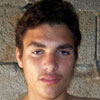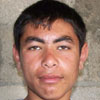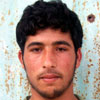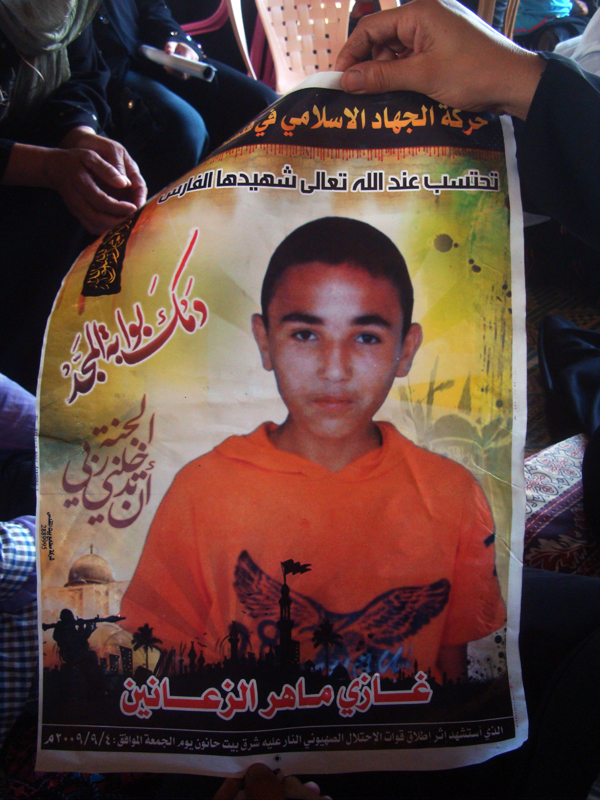On the morning of 10 February, Muhammad Subuh, 17, Saleh Abu Leylah, 16, and Maher Ghanem, 21, were in the area of the Israeli settlements that had been evacuated in the northern Gaza Strip, near the border with Israel. They were gathering wood, which they needed for cooking. Gas for cooking is lacking in the area due to the reduction in importation of cooking gas as part of the siege on the Strip.
After the Palestinians had been gathering wood for a while, Israeli soldiers approached them. Muhammad Subuh described what happened then.
 The soldiers stopped about 150 meters from us and kneeled into firing position. I rushed to gather the wood. One of the soldiers fired, hitting me in the right hand. Then he fired again and hit me in the chest, on the right side, and then another shot grazed the front of my chest. I fell to the ground. My two friends who were with me raised their hands and didn’t move.
The soldiers stopped about 150 meters from us and kneeled into firing position. I rushed to gather the wood. One of the soldiers fired, hitting me in the right hand. Then he fired again and hit me in the chest, on the right side, and then another shot grazed the front of my chest. I fell to the ground. My two friends who were with me raised their hands and didn’t move.According to the testimonies given by the three youths, following the shooting, the soldiers gave Subuh first-aid and ordered Ghanem and Abu Leylah to carry him to the border, where the soldiers put him into an army vehicle which then drove away.
Abu Leylah and Ghanem were then taken to a location in Israel, where they were held separately for about two hours, their hands bound and blindfolded the whole time. They were then questioned about their actions near the border. After that, they were driven in separate vehicles to Erez Crossing. Abu Leylah related what happened on the way.
 They drove me in a jeep for about half an hour. On the way, the jeep stopped from time to time, and the soldiers took me out, hit me in the neck, and pulled my hair. They accused me of being in Hamas. I told them I wasn’t. A soldier burned my left hand with a cigarette. We got to Erez Crossing. The soldiers took me out of the jeep. They removed the cuffs and blindfold. I saw them remove Maher from another jeep. From there, we returned to Gaza.
They drove me in a jeep for about half an hour. On the way, the jeep stopped from time to time, and the soldiers took me out, hit me in the neck, and pulled my hair. They accused me of being in Hamas. I told them I wasn’t. A soldier burned my left hand with a cigarette. We got to Erez Crossing. The soldiers took me out of the jeep. They removed the cuffs and blindfold. I saw them remove Maher from another jeep. From there, we returned to Gaza.Ghanem, too, related what happened on the way to Erez Crossing.
 Two hours later, they put us into an army jeep, each of us separately. On the way, the jeep stopped a few times. The soldiers opened the back door and swore at me and hit me in the face and neck, and put out cigarettes on my hands. They did this a few times, until we got to Erez Crossing. At the crossing, I joined Saleh again, and we stayed there for about an hour, until they released us.
Two hours later, they put us into an army jeep, each of us separately. On the way, the jeep stopped a few times. The soldiers opened the back door and swore at me and hit me in the face and neck, and put out cigarettes on my hands. They did this a few times, until we got to Erez Crossing. At the crossing, I joined Saleh again, and we stayed there for about an hour, until they released us.
 Two hours later, they put us into an army jeep, each of us separately. On the way, the jeep stopped a few times. The soldiers opened the back door and swore at me and hit me in the face and neck, and put out cigarettes on my hands. They did this a few times, until we got to Erez Crossing. At the crossing, I joined Saleh again, and we stayed there for about an hour, until they released us.
Two hours later, they put us into an army jeep, each of us separately. On the way, the jeep stopped a few times. The soldiers opened the back door and swore at me and hit me in the face and neck, and put out cigarettes on my hands. They did this a few times, until we got to Erez Crossing. At the crossing, I joined Saleh again, and we stayed there for about an hour, until they released us.The two were released at Erez Crossing. Subuh was treated at Barzilai Hospital, in Ashkelon, where he underwent surgery. He was discharged from the hospital four days later and was taken to Erez Crossing, where he was released without having been interrogated.
The testimonies stating that the shooting was not preceded by a warning is consistent with previous reports indicating that the IDF has classified extensive areas adjacent to the perimeter fence “death zones” and that orders permit soldiers to open fire automatically at anybody who enters the area, regardless of the circumstances. Leaflets distributed by the army in the area explicitly state that anyone who comes within 300 meters of the perimeter fence “endangers his life,” and that the soldiers are authorized to open fire.
A fundamental principle of international humanitarian law is the distinction between combatants and civilians who are not taking part in the hostilities. Attacks intended to harm civilians is absolutely prohibited. When there is question whether persons are civilians or combatants, they must be treated as civilians. Opening fire automatically at every person who enters a certain area, regardless of the person’s identity or the circumstances of his being there, as in the cases described above, is “indiscriminate firing,” which could be considered a war crime.
The case involved three persons, two of them minors, who were gathering wood in daylight and were not endangering anybody. The fact that the army released them a few hours after the incident reinforces the contention that they were not involved in any activity against Israel. Based on the above, the shooting blatantly breached international humanitarian law. If the army’s open-fire regulations allow firing in such a circumstance, the provisions must be nullified immediately.
In a letter to the Judge Advocate General’s Office, B'Tselem demanded an investigation into the shooting of Muhammad Subuh and the violent treatment of Maher Ghanem and Saleh Abu Leylah.



